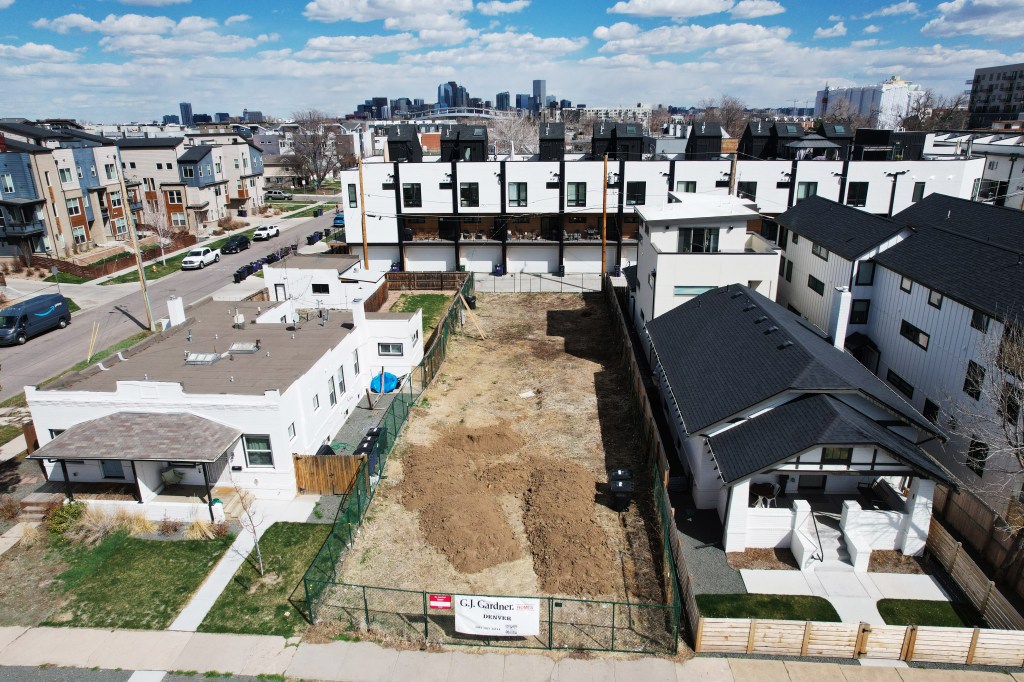City Planning Officials Take a Stand Against Gentrification in West Denver Neighborhoods
In a move that has stirred both support and criticism, Denver’s Community Planning and Development announced a significant shift in their approach towards rezoning applications in several west Denver neighborhoods. The decision to pause rezoning approvals for higher-density projects like row homes in single-family home properties has sparked a debate about the future of these historically Latino areas.
The Memo and Its Implications
The memo issued by the planning department on Oct. 10 marks a pivotal moment in the efforts to curb gentrification trends in the west-central part of Denver. The temporary halt on rezoning applications aims to address the pressing need for affordable housing options and to prevent further displacement of long-time residents.
While the decision has received backing from City Councilwoman Jamie Torres and some residents, it has also faced opposition from housing advocates who argue that restricting development will exacerbate the affordable housing crisis caused by limited supply.
The Impact on West Area Plan Neighborhoods
The rezoning pause affects six neighborhoods covered by the West Area Plan, which outlines a resident-informed vision for future development in these areas. The data presented in the memo paints a stark picture of rising home values, declining ethnic diversity, and increasing median household incomes, highlighting the urgent need for intervention.
Addressing the Root Issues
City officials emphasize that the goal is not to prevent property owners from submitting rezoning applications but to ensure that any changes align with the principles of the West Area Plan. The focus is on developing tools to protect existing affordable housing and prevent involuntary displacement, signaling a shift towards a more holistic approach to urban development.
Looking Towards Solutions
As the city explores ways to mitigate the impact of development in vulnerable neighborhoods, discussions are underway about promoting “missing middle housing” to encourage a more gradual increase in density. By incentivizing adaptive reuse of buildings and introducing on-site affordable housing requirements for smaller-scale developments, the aim is to strike a balance between growth and preservation.
The Way Forward
City Councilwoman Torres stresses the importance of finding solutions that support existing residents while addressing the need for increased housing options. The urgency of the situation calls for a comprehensive approach that combines regulations, incentives, and community support to ensure a sustainable future for west Denver neighborhoods.
Conclusion
The decision by Denver’s Community Planning and Development to pause rezoning applications in west Denver neighborhoods reflects a broader effort to tackle the challenges of gentrification and affordability. By engaging with residents, exploring innovative housing solutions, and balancing growth with preservation, city officials are taking a proactive stance towards creating more inclusive and sustainable communities.
Frequently Asked Questions
1. How will the pause on rezoning applications impact development in west Denver?
– The pause aims to address gentrification trends and promote affordable housing options in the affected neighborhoods.
2. What are the key factors driving the decision to restrict higher-density projects in single-family home properties?
– Rising home values, declining ethnic diversity, and increasing median household incomes have prompted city officials to reevaluate development strategies.
3. What are some of the proposed solutions to mitigate the impact of development in vulnerable neighborhoods?
– Initiatives like promoting missing middle housing, incentivizing adaptive reuse of buildings, and introducing on-site affordable housing requirements are being considered.
4. How does the West Area Plan guide future development in west Denver neighborhoods?
– The plan provides a framework for resident-informed decision-making and outlines long-term goals for preserving affordability and preventing displacement.
5. What role does City Councilwoman Jamie Torres play in the discussion on urban development in west Denver?
– Torres advocates for a balanced approach that supports existing residents, promotes affordable housing, and addresses the challenges of gentrification.
6. How do housing advocates view the decision to pause rezoning applications in west Denver neighborhoods?
– Some housing advocates argue that restricting development will worsen the affordable housing crisis by limiting supply and driving up prices.
7. What are the potential implications of the rezoning pause on property owners seeking to develop their land?
– Property owners may face challenges in pursuing higher-density projects on single-family home properties until the rezoning pause is lifted.
8. How does the concept of missing middle housing contribute to a more sustainable approach to urban development?
– Missing middle housing offers a middle-ground solution between large apartment buildings and single-family homes, catering to diverse housing needs and promoting affordability.
9. What are the broader implications of the planning department’s decision on the future of west Denver neighborhoods?
– The decision reflects a shift towards a more inclusive and sustainable approach to urban development, aiming to balance growth with community preservation.
10. How can residents and stakeholders contribute to the ongoing discussions on urban development in west Denver?
– By actively engaging with city officials, participating in community meetings, and sharing their perspectives on the future of their neighborhoods, residents can play a crucial role in shaping the city’s development policies.
Tags: Denver, Community Planning, Development, West Denver, Gentrification, Affordable Housing, Urban Development, City Council, Neighborhoods, Rezoning, Housing Crisis, Inclusivity, Sustainability, Preservation, Growth.

